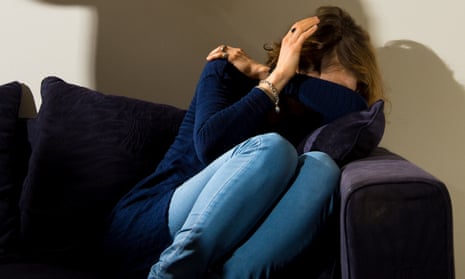Sign up for the Week in Patriarchy, a newsletter on feminism and sexism sent every Saturday.
Coronavirus is fuelling domestic violence
Home is supposed to be the safest place any of us could be right now. However, for people experiencing domestic violence, social distancing means being trapped inside with an abuser. As more cities go under lockdown, activists are worried that attempts to curb the coronavirus will inadvertently lead to an increase in domestic violence.
Domestic violence is already a deadly epidemic. One in three women around the world experience physical or sexual violence, mostly from an intimate partner, according to the World Health Organization (WHO). As the WHO notes: “This makes it the most widespread, but among the least reported human rights abuses.” Gender-based violence tends to increase during humanitarian emergencies and conflicts; “women’s bodies too often become battlefields”.
Reports from China suggest the coronavirus has already caused a significant spike in domestic violence. Local police stations saw a threefold increase in cases reported in February compared with the previous year, according to Wan Fei, the founder of an anti-domestic violence not-forprofit. “According to our statistics, 90% of the causes of violence are related to the Covid-19 epidemic,” Wan told Sixth Tone, an English-language magazine based in China.
A similar story is playing out in America. A domestic violence hotline in Portland, Oregon, says calls doubled last week. And the national domestic violence hotline is hearing from a growing number of callers whose abusers are using Covid-19 to further control and isolate them. “Perpetrators are threatening to throw their victims out on the street so they get sick,” the hotline’s CEO told Time. “We’ve heard of some withholding financial resources or medical assistance.”
With all attention focused on curbing a public health crisis, the problem of private violence risks being overlooked or deprioritized by authorities. In the UK, for example, schools are now closed to everyone except for the children of key workers performing essential services. Domestic violence professionals have been left off this list; apparently preventing abuse at home isn’t an essential service. Dawn Butler, Labour’s women and equalities spokeswoman, has asked the prime minister to “urgently reconsider” this classification and consider implementing emergency funding to help people in danger escape domestic abuse during the crisis. “[T]wo women are killed every week by a partner or former partner,” Butler tweeted. “If the Govt fails to prepare and plan more people will die.”
Now more than ever we need to look out for the most vulnerable in our society; activists are calling on neighbors to be extra aware and vigilant of possible cases of domestic violence. Retreating into our homes doesn’t mean cutting ourselves off from our communities. We’re all in this together.
Harvey Weinstein begins his 23-year sentence
The convicted rapist was transferred to a maximum-security prison in New York on Wednesday. New York’s governor, Andrew Cuomo, recently announced that New York will produce its own hand sanitizer, manufactured by prison inmates making as little as $0.16 an hour – so it’s possible that Weinstein might end up making state sanitizer.
Remembering the Latina who invented hand sanitizer
Did you know hand sanitizer was invented by a woman? In 1966 a student nurse named Lupe Hernandez realized that alcohol in gel form could be used to wash hands when there was no access to soap and water. Hernandez, who was based in California, quickly called an inventions hotline to patent the idea.
Four men executed over Delhi rape and murder
In 2012 a 23-year-old medical student was brutally gang-raped and murdered in a Delhi bus; a crime which shook the world and sparked unprecedented protests in India. On Friday four of the men convicted of the crime were hanged, the first time in five years capital punishment has been used in the country. One family may have got closure but the situation for Indian women remains bleak. “[I]n India, where a rape of a woman is reported every 16 minutes, this is no time for celebration,” argues a CNN op-ed. Since the attack India has introduced tougher sexual assault laws but rapes have continued to go up; in 2018, the last year for which there are statistics, they were significantly higher than in 2012.
New Zealand passes law to decriminalize abortion
“For over 40 years, abortion has been the only medical procedure considered a crime in New Zealand,” the country’s justice minister said in a statement. “But from now abortions will be rightly treated as a health issue.”
Catherine Hamlin, trailblazing doctor, dies at 96
The Australian gynecologist devoted much of her life to treating Ethiopian women with obstetric fistula – an injury sustained in childbirth that leaves women incontinent and often ostracized by their community.
Marvel unveils its first black non-binary superhero: Snowflake
Snowflake has a twin brother called Safespace. The reaction to these names has been less that ecstatic.
The average woman gets mansplained to 312 times a year
That’s according to a study of 2,000 employed women commissioned by a financial app called Self. I’m sure a helpful man somewhere will be happy to tell you exactly what is wrong with this study.
The week in penguinarchy
The best thing by far on the internet this week was a video of a penguin called Wellington marching around Chicago’s deserted aquarium and marveling at the fish. Coronavirus has caused most of us to go under lockdown, but at least Wellington got a nice day out.

